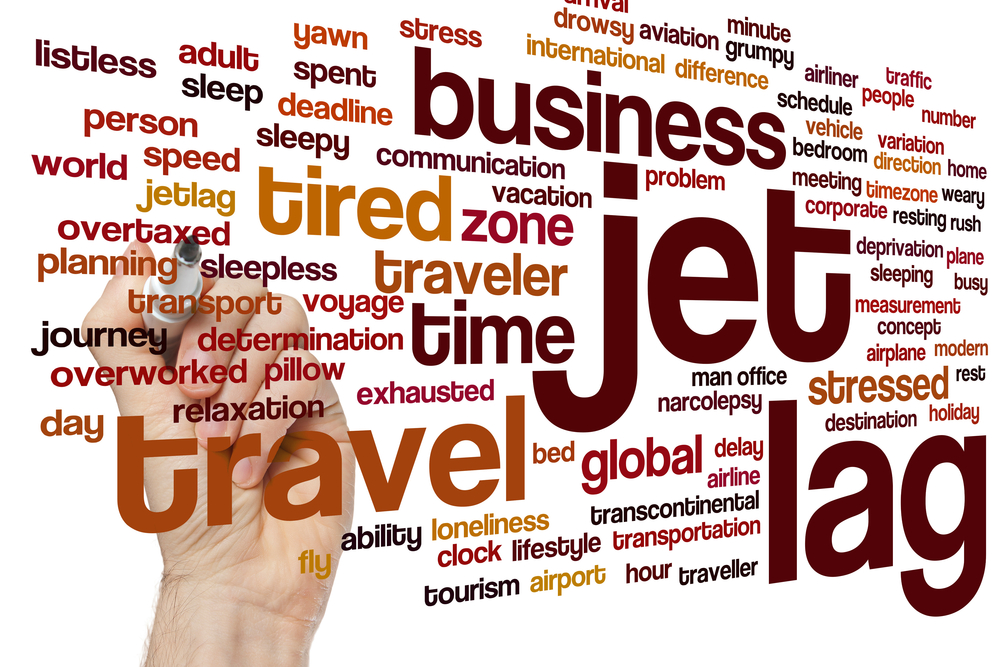How Well Will MS and Jet Lag Play Together?
Written by |


Diligent research and planning have left me confident in my ability to enjoy upcoming travels, while managing MS and health concerns. Decisions have been made regarding luggage, medications, airport travel, car rental, and accommodations. I know whether to expect sun or snow, cobblestone or freeways, and have been practicing my rudimentary Spanish with the help of Duolingo and some dear friends.
My oft-underused planning muscles are stretched and I am content to leave some choices until closer to departure. My travel companion knows MS is unpredictable and, based on my body’s cooperation, we may need to spend the day lounging poolside, trying to look like 1940s Hollywood stars, rather than marathon museum-ing. Getting this reality out in the open removes any worry that I may “disappoint” if we need to change our plans.
Of course, all effort will still be made to keep my MS in check. I was encouraged by a reader who commented on my last post and strongly suggested that I get assistance at the airport. Good advice. In Tips and Tricks for Traveling with MS, “Dave” at Active MSers writes: “Check the ego. You have lots of tools at your disposal to make traveling easier — use them. Wheelchairs, canes, trekking poles, scooters, rollators, disposable undergarments, you name it. Is someone staring? Who bloody cares.” I will take that advice and have a wheelchair meet me at the plane in Madrid. I simply don’t know how my body will react to a long flight, and the reader wisely pointed out that customs’ lines can be slow.
Active MSers also points out that stress, heat and fatigue all can cause a pseudo-exacerbation (a flare-up of already existing symptoms, rather than new disease activity). Stress, heat and fatigue are challenging for me to avoid when I travel within the United States, so I suspect it’s safe to assume I will have at least one pseudo-exacerbation. During the course of planning, I became curious about the combination of jet lag and MS.
In “‘Tis the Season for Holiday Travel,” Momentum magazine quotes David E. Jones, MD, an assistant professor of neurology at the University of Virginia: “Jet lag can affect fatigue, appetite and concentration, and cause headaches or a feeling of malaise in anyone,” Jones writes. “And if you’re already dealing with MS fatigue, as up to 90 percent of people with MS are, it can be a compounding factor”.
The Mayo Clinic describes jet lag as causing the following symptoms:
- Disturbed sleep
- Daytime fatigue
- Difficulty concentrating
- Stomach problems – constipation or diarrhea
- A general feeling of not being well
- Mood changes
Cool! Maybe I don’t have MS — just permanent jet lag!
Most people report greater jet lag when traveling in an easterly direction, so I am planning a quiet first day. I land at 9 a.m. and I’ll make sure to force my eyeballs to stay open and soak up some sunlight in an effort to reset the circadian clock. I will use the day to relax, rehydrate, and orient myself. Careful timing of coffee, and perhaps an easy walk outside, should help me stay awake until close to bedtime.
The Mayo Clinic explains that jet lag symptoms may increase in correlation to the number of time zones you cross. If I understand the time zone map correctly (and these sorts of things are always dubious with me), I’ll be traveling through five zones. With this in mind, I will endeavor to employ all of the prevention tips mentioned by the Mayo Clinic:
- Arrive early to your destination, so that you have a day to recover before activities start.
- Get plenty of rest before the trip.
- Adjust your sleep schedule before the trip (I will adjust by one hour, for a few days before my trip)
- Regulate light exposure. (Traveling east, it is recommended that I get morning light exposure my first day.)
- Stay on schedule with the new time zone. (Don’t think about what time it is back home.)
- Stay hydrated.
- Sleep on the plane if it is night where you are going (Hoepfully, Baclofen will help).
This is as close to the planning shoreline as I care to venture. Writing this caused me to realize that although MS and jet lag may not play well together, unpredictable MS and my curious and flexible personality do. I’ve got this. That realization is the first treasure discovered, in what is sure to be an eye-opening adventure, full of discovery and fun. Vamos a empezar esta fiesta!
***
Note: Multiple Sclerosis News Today is strictly a news and information website about the disease. It does not provide medical advice, diagnosis, or treatment. This content is not intended to be a substitute for professional medical advice, diagnosis, or treatment. Always seek the advice of your physician or other qualified health provider with any questions you may have regarding a medical condition. Never disregard professional medical advice or delay in seeking it because of something you have read on this website. The opinions expressed in this column are not those of Multiple Sclerosis News Today, or its parent company, Bionews Services, and are intended to spark discussion about issues pertaining to multiple sclerosis.



Wendi Peeters
I have recently returned from 8 days in the US state of Washington. The journey there was long(3 flights) but I didn't feel too bad while I was there. Coming back to the UK though was a different story. Again it was 3 flights eventually arriving home at about 8am, and I know a lot of people say to try and stay awake, no way, I was exhausted!
Two and a half weeks later I don't feel much better! I'm still very tired, could sleep anytime and my appetite is even more precarious than it was before. I'm finding this frustrating and difficult to deal with as before I went I was very active and used to working out at least 5 times a week! Now all I can find energy for is the very basics!
Any advice or suggestions appreciated?!
Judy Lynn
Hi Wendi- what a coincidence, you were here in my home state! I hope you enjoyed your time in Washington. My advice- be patient with your body. I should write a follow-up to my travel columns, to share that it took me over two weeks to feel 'my normal' when I returned from Spain. I was utterly exhausted, weak, foggy, and slow for 18 days!
I think the excitement of travel and beautiful things to see caused me to push myself hard on my vacation, so my body was recovering from that as well as jet lag. I ate copious fruits and veggies, coconut water, and vitamins, but it still took awhile. If you're not back to yourself yet, check with your doctor!